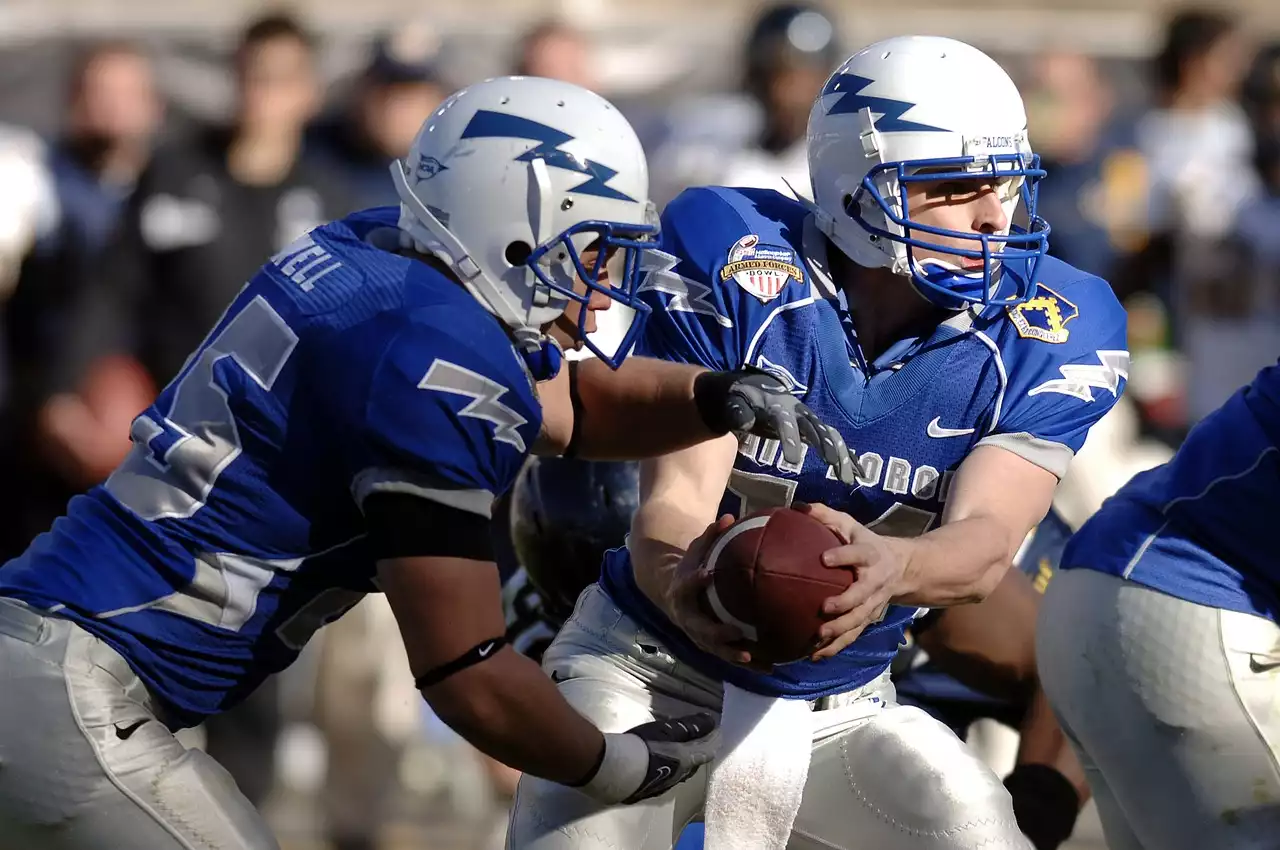The Role of Recruiting in College Football
Recruiting is an essential part of college football, and it's the lifeblood of any successful program. Coaches spend countless hours watching film, attending high school games, and evaluating prospects to find the best players to add to their roster. The recruiting process is a year-round effort, and the best programs have a dedicated staff focused solely on recruiting.
Recruiting is important for several reasons. First, it's necessary to replace graduating seniors and fill any gaps in the roster. Second, it's essential for building a strong team that can compete at a high level. Third, recruiting helps to attract top talent, which can lead to increased exposure and revenue for the program.
NCAA Rules and Regulations for Recruiting
The NCAA has strict rules and regulations governing the recruiting process. Coaches must adhere to these rules to avoid penalties and sanctions. Some of the rules include:
- Contact: Coaches can't contact recruits until a specific time period in their high school careers. For football, coaches can't contact recruits until September 1 of their junior year. - Visits: Recruits can take official visits to a school once during their senior year of high school. They can take an unlimited number of unofficial visits. - Offers: Coaches can't offer scholarships until a specific time period in a recruit's high school career. For football, coaches can't offer scholarships until August 1 before their senior year.
The Different Stages of the Recruiting Process
The recruiting process can be broken down into several stages, each with its own unique challenges and opportunities. Here's a breakdown of the different stages:
Evaluation
The evaluation stage is where coaches identify potential recruits. This can happen through a variety of methods, including attending high school games, watching film, and talking to high school coaches. Coaches are looking for players who have the physical attributes, skills, and character traits that fit their program.
Building a Profile
Once a coach has identified a recruit, they will start building a profile on them. This includes gathering information about their academic background, athletic achievements, and personal character. Coaches will also evaluate the recruit's social media presence to ensure they are a good fit for the program.
Offers and Visits
If a coach is interested in a recruit, they will extend an offer to them. This offer can come in the form of a scholarship or a preferred walk-on spot. Once an offer is extended, the recruit can take an official visit to the school. During this visit, the recruit will meet with coaches, tour the campus, and learn more about the program.
Commitment
If a recruit is impressed with the program, they may choose to commit to the school. This means they have agreed to attend the school and play football there. Once a recruit has committed, they can't take official visits to other schools.
Signing Day
Signing day is when recruits make their commitment official by signing a National Letter of Intent (NLI). This document binds the recruit to the school they have committed to and prohibits other schools from recruiting them.
How Coaches Evaluate Recruits
Evaluating recruits is a complex process that involves a lot of factors. Coaches are looking for players who have the physical attributes, skills, and character traits that fit their program. Here are some of the things coaches look for:
Physical Attributes
Coaches want players who have the physical tools to succeed at the college level. This includes things like size, speed, strength, and agility. Coaches will evaluate a player's physical attributes by watching film and attending games.
Football Skills
In addition to physical attributes, coaches want players who have the football skills to succeed at the college level. This includes things like technique, instincts, and football IQ. Coaches will evaluate a player's football skills by watching film and attending games.
Character Traits
Finally, coaches want players who have the character traits to succeed at the college level. This includes things like work ethic, coachability, and leadership. Coaches will evaluate a player's character traits by talking to high school coaches and other people who know the player.
Building a Strong Recruiting Profile
If you're a high school football player looking to get recruited, it's important to build a strong recruiting profile. Here are some tips for building a strong profile:
Highlight Reel
Create a highlight reel that showcases your best plays. Coaches don't have time to watch full games, so a highlight reel is a great way to get their attention.
Grades and Test Scores
Good grades and test scores are important for getting recruited. Coaches want players who are academically qualified to play at the college level.
Social Media Presence
Be mindful of your social media presence. Coaches will evaluate your social media accounts to get a sense of your character and personality.
Attitude and Work Ethic
Finally, coaches want players who have a positive attitude and a strong work ethic. Show that you're willing to work hard and be a team player.
Navigating the Recruiting Timeline
The recruiting timeline can be confusing, so it's important to understand the different stages and deadlines. Here's a breakdown of the recruiting timeline:
- Freshman and Sophomore Years: Coaches can't contact recruits during their freshman and sophomore years. - Junior Year: Coaches can start contacting recruits on September 1 of their junior year. Recruits can start taking unofficial visits at any time. - Summer Before Senior Year: Coaches can start offering scholarships on August 1 before a recruit's senior year. - Senior Year: Recruits can take official visits to a school once during their senior year. Signing day is the first Wednesday in February.
The Importance of Official and Unofficial Visits
Visits are an important part of the recruiting process. They give recruits a chance to see the campus, meet with coaches, and get a sense of the program. There are two types of visits: official and unofficial.
Official Visits
Official visits are paid for by the school and can only happen during a recruit's senior year. During an official visit, the recruit will meet with coaches, tour the campus, and attend a football game. The school can pay for transportation, lodging, and meals.
Unofficial Visits
Unofficial visits can happen at any time and are paid for by the recruit and their family. During an unofficial visit, the recruit can meet with coaches and tour the campus. The school can't pay for any expenses.
Making a Decision: Committing to a College
Once a recruit has gone through the evaluation process, taken visits, and received offers, it's time to make a decision. This can be a difficult and stressful process, but there are some things to keep in mind:
- Fit: Make sure the program is a good fit for you academically, athletically, and socially. - Coaching Staff: Get to know the coaching staff and make sure you feel comfortable with them. - Playing Time: Consider how much playing time you're likely to get and whether it fits with your goals. - Relationships: Think about the relationships you've built with coaches, players, and other recruits.
Tips for Succeeding in the College Football Recruiting Process
If you're a high school football player looking to get recruited, here are some tips for succeeding in the process:
- Be Proactive: Don't wait for coaches to come to you. Reach out to coaches and let them know you're interested in their program. - Keep Your Options Open: Don't commit to a program too early in the process. Keep your options open and take visits to other schools. - Be Realistic: Understand that not every player is going to get a scholarship to a Division I program. Be open to playing at other levels. - Stay Focused: Don't let the recruiting process distract you from your academics and your current team.










